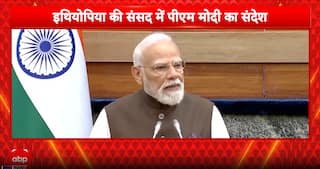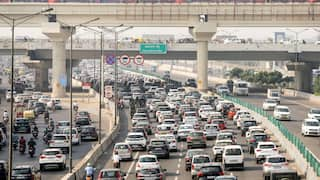India Will Become A $5 Trillion Economy Early In ‘Amrit Kaal’: MoS Finance Chaudhary
The minister further stated that in the process of achieving the goal of becoming an advanced economy by 2047, the country will become a $5 trillion economy early in the ‘Amrti Kaal’.

India will become a $5 trillion economy early in the ‘Amrit Kaal’, the Minister of State for Finance Pankaj Chaudhary said on Monday. The minister said that the country is on the path to achieving the goal of becoming an advanced economy by 2047.
In a written reply to the Lok Sabha, the minister said, “The International Monetary Fund (IMF) has projected India to become a $5 trillion economy with the third largest GDP in 2027-28. The $5 trillion milestone will be crossed with the help of a strong rupee which will result from macroeconomic stability,” reported PTI.
The minister further stated that in the process of achieving the goal of becoming an advanced economy by 2047, the country will become a $5 trillion economy early in the ‘Amrti Kaal’. Notably, India’s GDP stood at $3.7 trillion at the end of 2022-23. The size of the Indian economy increased from $189 billion in 1980-81 to $326 billion a decade later. In 2000-01, the GDP size increased to $476 billion, which expanded to $1.71 trillion in 2010-11, and $2.76 trillion in 2020-21.
Chaudhary noted that the exchange rate cannot be an overlooked factor as it places India’s GDP size in the world. ‘India is a market economy and the government monitors economic progress through market-determined GDP and exchange rate’, the minister said.
Among other factors to determine the country’s GDP, Chaudhary counted the domestic, and international markets, and added that these also help determine the exchange rate and contribution of various sectors to the GDP. Notably, the share of the agriculture, industry and services sectors to nominal GDP in FY23 stood at 18.4 per cent, 28.3 per cent, and 53.3 per cent respectively.
The minister added that the government also adds to the economic progress via policy interventions, including the measures announced in annual budgets. The major initiatives undertaken by the government in the last nine years for directly boosting the GDP include the implementation of the Insolvency and Bankruptcy (IBC) Code, recapitalisation of public sector banks, rollout of Goods and Services Tax (GST), reduction in corporate tax, increase in effective capital expenditure, the launch of the PLI scheme in 14 sectors, and development of digital infrastructure.
Also Read : Adani Group Companies Benefit From Market Sentiment, Stocks Soar High






































